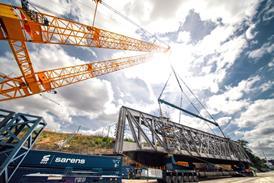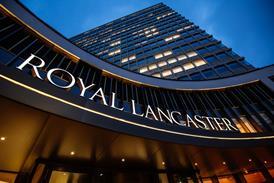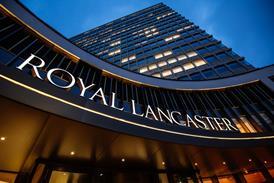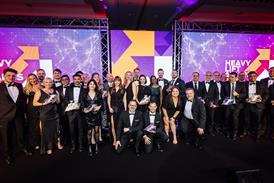August 15 - Mobile crane specialist Gottwald Port Technology, a subsidiary of Demag Cranes AG, is expanding the range of training courses it offers for crane operators.
It has worked with the Antwerp-based OCHA port training centre to develop a concept to provide customers with three stages of in-depth training with the courses aiming to ensure that cranes are operated as safely and efficiently as possible.
The company says that the expanded training concept utilises an integrated approach, the first stage of which includes two weeks of simulator training. This is supplemented by a second phase with a week of hands-on training. In addition, customers can utilise on-site advanced training in a third phase to consolidate what they have learned. This is designed for trained crane operators who have already put what they have learned into practice.
Demag Cranes sees the new training courses as a further step of its strategy not only to provide its customers with innovative products, but also to offer long-term service.
One of the first customers to utilise the new training concept was the Port of Napier, New Zealand. As an owner of four Gottwald mobile harbour cranes, the port arranged for two of its new crane drivers to receive comprehensive training in July 2011. "Since we have a vital interest in enabling our crane drivers to become familiar with their everyday work as quickly as possible, we decided to send two of them to Antwerp", states Chris Bain, chief operating officer of Port of Napier.
The simulation included training on all types of cargo, including containers, bulk materials, general cargo and project cargoes. A Gottwald HMK 260 E mobile harbour crane, which has been used by the training centre since 2009, was available for the hands-on training. According to the two trainees, the result left nothing to be desired, explained senior crane driver Peter van Veelen. "Our crane drivers learned as much in three weeks in Antwerp as they normally would in several months, without the need for us to make resources or staff available in New Zealand."
Carsten Wittmer, head of training at Demag Cranes, explains, "The potential of a crane can only be fully utilised if the operator has a perfect understanding of how to use the technology." For this reason, the interaction between man and machine needs to be continuously optimised, which is precisely where Demag Cranes acts as a partner for its customers.
According to Wittmer, the main aim while planning the new training concept was to develop a programme that is state-of-the-art in every respect. "The methodology and didactics of our integrated concept is based on the latest developments and utilises state-of-the-art training equipment."
The training package includes a simulator course and hands-on training as well as an optional on-site advanced training.
















